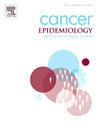Associations between hospitalized infections in the first 24 months of life and risk of cancer in early-mid adulthood
IF 2.3
3区 医学
Q3 ONCOLOGY
引用次数: 0
Abstract
Background
It is increasingly recognized that early life factors play a role in the rising prevalence of cancer in young adult life. Acute childhood infections may protect against development of cancer, but evidence is limited. We investigated whether infection-related hospital contacts during the first 24 months of life were associated with the risk of cancer in early-mid adult life in a large population-based Danish cohort.
Methods
We included 68,538 individuals (33,569; 49.0 % women) born 1977–1996 from the Copenhagen School Health Records Register. Using individual-level linkage to national registries, we obtained information on infection-related hospital contacts between birth and 24 months and early-onset cancer (diagnosed 15–45 years). Hazard ratios (HR) and 95 % confidence intervals (CI) were estimated using Cox regressions adjusted for maternal education.
Results
From birth to 24 months of life, 14,718 individuals (21.5 %) had at least one infection-related hospital contact. During follow-up, 788 individuals were diagnosed with cancer. Compared to individuals who did not have an infection-related hospital contact, those who had a least one had a lower risk of early-mid adulthood cancer (HR=0.82, 95 % CI: 0.68–0.98). We found limited evidence of a dose-response inverse effect of infection-related hospital contacts on cancer risk.
Conclusion
Infection-related hospital contacts during the first 24 months of life was associated with a reduced risk of cancer in early-mid adult life. Replication in other populations is warranted and mechanistic studies are needed to understand the biological mechanisms underlying these epidemiological observations.
生命最初24个月住院感染与成年早期中期癌症风险之间的关系
越来越多的人认识到,早期生活因素在青年期癌症发病率上升中起着重要作用。急性儿童感染可能预防癌症的发展,但证据有限。我们调查了在出生后的前24个月与感染相关的医院接触是否与成年早期中期癌症的风险相关。方法纳入68538例个体(33569例;49.0 %女性)1977-1996年出生,来自哥本哈根学校健康记录登记册。通过个人层面与国家登记处的联系,我们获得了出生至24个月之间与感染相关的医院接触和早发性癌症(诊断为15-45岁)的信息。风险比(HR)和95% %置信区间(CI)使用经母体教育调整的Cox回归进行估计。结果从出生到24个月,14718人(21.5% %)至少有一次与感染相关的医院接触。在随访期间,788人被诊断出患有癌症。与没有与感染相关的医院接触的个体相比,至少有一次接触的个体患成年早期中期癌症的风险较低(HR=0.82, 95 % CI: 0.68-0.98)。我们发现有限的证据表明与感染相关的医院接触对癌症风险有剂量-反应反作用。结论出生后24个月内与感染相关的医院接触与成年中早期癌症风险降低相关。在其他人群中进行复制是必要的,需要进行机制研究,以了解这些流行病学观察结果背后的生物学机制。
本文章由计算机程序翻译,如有差异,请以英文原文为准。
求助全文
约1分钟内获得全文
求助全文
来源期刊

Cancer Epidemiology
医学-肿瘤学
CiteScore
4.50
自引率
3.80%
发文量
200
审稿时长
39 days
期刊介绍:
Cancer Epidemiology is dedicated to increasing understanding about cancer causes, prevention and control. The scope of the journal embraces all aspects of cancer epidemiology including:
• Descriptive epidemiology
• Studies of risk factors for disease initiation, development and prognosis
• Screening and early detection
• Prevention and control
• Methodological issues
The journal publishes original research articles (full length and short reports), systematic reviews and meta-analyses, editorials, commentaries and letters to the editor commenting on previously published research.
 求助内容:
求助内容: 应助结果提醒方式:
应助结果提醒方式:


